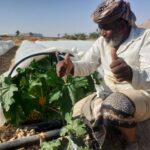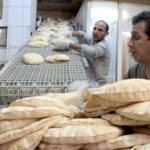The Gaza Strip has entered a “worst case” food crisis, with its population now facing famine, according to a July 29 Integrated Food Security Phase Classification (IPC) alert. Responding to growing international outrage over the emergency, two days earlier, Israel said it was reopening humanitarian aid corridors—allowing international organizations to resume convoys—while the Israeli Defense Force announced a daily “tactical pause” on operations in densely-populated Gaza City, Deir al-Balah, and Mawasi to facilitate aid distribution.
Established in 2014 and managed by the International Food Policy Research Institute (IFPRI), the Arab Food and Nutrition Security (AFNS) Blog seeks to disseminate policy-relevant discussions and insights from experts working on food and nutrition security in the MENA region.
The opinions or views contained in the AFNS Blog do not represent those of , CGIAR, , IFPRI, it's employees, agents, or affiliates.
Egypt’s experience bridging cash transfers and an economic inclusion program for sustainable social protection
In 186 countries worldwide, cash transfer programs are the cornerstone of social protection, outnumbering social security or pension plans. These offer critical financial lifelines to vulnerable households, aiming to alleviate poverty by providing steady cash support. However, these programs can become long-term fiscal burdens for governments due to limited turnover of recipients, particularly when the programs do not lead to lasting reductions in poverty.
Solar Irrigation in Yemen: Promising Impacts Several Months Post Implementation
Technical support component of the intervention was in the form of technical training through agronomists and linking the beneficiaries with other market players such as input suppliers and microfinance institutions. Beneficiaries received technical training on the components and operation of solar-powered water pumps, including the different types available and their respective advantages and disadvantages, and the daily and periodic maintenance required to keep solar-powered pumps functioning optimally
One year of war in Gaza: Food emergency continues with no end in sight
With conflict in the Middle East now escalating into Lebanon and beyond, Palestinians in the Gaza Strip continue to face dire food security conditions. One year has passed since the October 7, 2023 Hamas attacks on Israeli civilians, triggering the Israeli military retaliation and war that have killed more than 41,000 Palestinians and devastated the livelihoods of Gaza’s population of over 2 million.
Higher wheat prices push Egypt to increase price of subsidized bread for first time since 1989
Bread prices have long been a sensitive political issue in Egypt. In 1977, President Anwar Sadat cut the subsidies, triggering protests known as the “bread intifada”—ultimately forcing him to roll back his subsidy reform. In 2011, Egyptians took to the streets protesting the regime of President Hosni Mubarak with slogans calling for “bread, freedom, and social justice.” In 2017, Egyptian Ministry of Supply proposals to reduce the state-sponsored provision of bread from up to 4,000 to 500 loaves per bakery provoked large-scale protests across the country.
- 1
- 2
- 3
- …
- 39
- Next Page »





